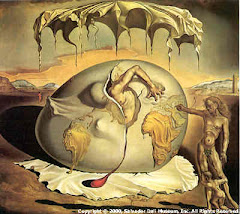Any attempt to construct a system of ethics must issue from a particular ideological and political standpoint, as well as from a particular historical and cultural point of view. In the past, ethical theories have often been presented as absolute and eternal truths that describe an unchanging objective moral reality. I do not believe that ethics should be regarded as body of eternal truths, rather the point of view adopted here is that ethical ideas are products of human intelligence and have evolved and must continue to change in response to the changing conditions of human existence.
My attempt to describe a global ethics is not being put forward as a master narrative that will stand for all time, or for all conceivable human cultures. Instead my goal is to describe a historically-situated, and indeed, provisional ethical theory, one that I believe roughly approximates the kinds of ethical system that will be needed in order to govern the global community of human beings living on Earth in the twenty-first century and beyond. In other words, the sense of the word "ethics” as it is used here is not the eternal or transcendent sense of an objectively true body of norms laid down by divine command or grasped through a pure rational intuition. Thus, while the present work is a good deal less ambitious than some earlier ethical theories produced by philosophers, e.g., those of Aristotle, Aquinas, or Kant who attempted to attain a philosophical standpoint that transcended history and culture, it is nevertheless quite ambitious.
The metaethical position from which the current work proceeds is moral constructivism, the metaethical view which sees morality, ethics, and law as social technologies that we invent in order to regulate human behavior. While the ethical framework I am describing aspires to universality, it is proposed as universal here only in the pragmatic sense that it attempts to provide a description of a global moral community based upon the ideas of universal human rights and corresponding social responsibilities that ought to be included in the ethical culture of human civilization in the twenty-first century. In order for any ethical theory to become universal in this sense, it needs to be effectively communicated and scaled up, so that a significant number of opinion-makers and other persons of influence take it up and employ it.
My approach to ethics is Nietzschean in that I assume that human values are at bottom products of the will -- we construct ethics and morality -- it is not something present in nature itself apart from the human will, nor is it divinely dictated. I believe that we can derive the concept of moral responsibility from the fact that we do, in fact, will certain ends, such as the end of human flourishing, or the end of the preservation and flourishing of life on earth. To say that moral values and imperatives are phenomena of the will, however, is not necessarily to agree that the moral will is arbitrary, subjective or that it must be irrational. The will can be brought under the sway of intelligence, imagination, and reason. Reason's counsel is the one which ought to be heeded if we hope to promote the good of humankind overall, for reason instructs us concerning the relations of means and ends, and so shows us whether the means which we choose are adapted to the ends which we will to promote. Reason can also help us to evaluate ends themselves by providing a theory of the human good, which, while fallible and subject to revision, offers the best available basis for belief concerning what ends we ought to will.
The mistake of the rationalist philosophers of the Enlightenment was not in seeking a rational basis for morality, but in assuming that rationality had to yield an ethical theory that was unified, unchallengable, apodictic, and a priori. In place of this conception of a rationality, I substitute a pluralistic, fallible, revisable search for an adequate ethical theory which can guide our weak and inconstant wills. The moral ends, laws, and virtues which define our societies are social products. This is to say that we create them, and can change them, improve them, or destroy them. Nietzsche was right in thinking that morality is ultimately phenomenon of the will, but he was wrong in thinking that it is the creation of the individual will; rather it is the product of the collective will of society in particular cultures at particular times.
The dominant ethos of human societies is more like Rousseau's idea of the general will. Given its collective character, the dominant ethos is created out of "We-intentions", that is, out of shared moral values and norms which become social realities by their being generally intended. The general moral will rarely be unified, but instead will represent a mosaic of various and sometimes conflicting wills which coexist in uneasy tension. Politics is the process whereby this divided and inconstant collective will, this set of partially overlapping "We-intentions" is translated into decisions concerning collective policies and action. Individuals can affect the general will only as a political actors. The individual, to the extent to which he is socially isolated, betrays his own will by condemning it to ineffectuality.
Thus, it follows, that in order to create a new table of values and a new conception of moral responsibility -- a global ethics -- one must engage an audience who will internalize this conception and promote it as forming a part of the dominant ethos. This is why I have decided to publish this book on the Internet as a philosophical blog. In doing so I am hoping to reach my intended audience, what Paul H. Ray has called "cultural creatives."




